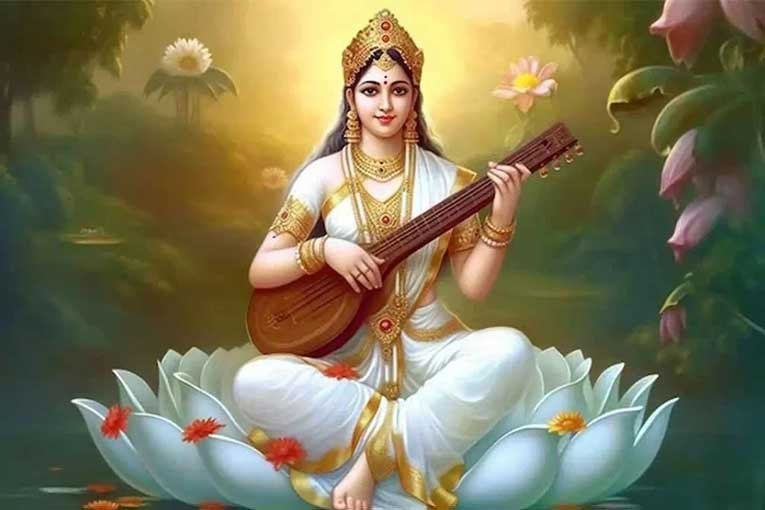Basant Panchami, also known as Vasant Panchami, is a Hindu festival that marks the arrival of spring. It is celebrated on the fifth day of the Hindu month of Magha, which typically falls in late January or early February. This auspicious day holds significant cultural and historical importance in India, with roots deeply embedded in mythology and ancient traditions.
Mythological Significance
The origin of Basant Panchami can be traced back to Hindu mythology. It is believed that this day marks the birthday of Goddess Saraswati, the deity of knowledge, wisdom, music, and learning. According to mythological texts, Saraswati is associated with purity and creativity, and her blessings are sought by students, artists, and scholars. On Basant Panchami, devotees pay homage to Goddess Saraswati by offering prayers and seeking her blessings for success in academics and the arts.
Association with Spring
Basant Panchami heralds the onset of spring, a season of renewal and rejuvenation. The festival is celebrated with great fervor as people rejoice in the blooming of flowers, the chirping of birds, and the vibrant colors of nature. The yellow blossoms of mustard flowers in the fields symbolize the arrival of spring and are often used in decorations and offerings during Basant Panchami celebrations.
Traditions and Rituals
On Basant Panchami, devotees wake up before dawn, take a holy bath, and wear yellow clothes as a symbol of prosperity and auspiciousness. They offer prayers to Goddess Saraswati and seek her blessings by placing books, musical instruments, and other tools of knowledge at her altar. Many educational institutions organize special ceremonies on this day to honor Saraswati and encourage students to pursue academic excellence.
In some regions of India, kite flying is a popular tradition associated with Basant Panchami. People gather on rooftops and open fields to fly colorful kites, symbolizing the freedom and joy of the spring season. The sky becomes a canvas of fluttering kites, creating a festive atmosphere filled with laughter and camaraderie.
Regional Celebrations
Basant Panchami is celebrated with unique customs and traditions across different states of India. In Punjab, it is known as ‘Basant Festival’ and is marked by vibrant processions, folk music, and dance performances. In West Bengal, the day is celebrated as ‘Saraswati Puja’ with elaborate rituals and offerings made to Goddess Saraswati in schools, colleges, and homes.
In Rajasthan, Basant Panchami is celebrated with the traditional custom of ‘Kite Festival’, where people engage in friendly kite-flying competitions and enjoy feasting on sweets and savories. In Uttar Pradesh, the city of Varanasi witnesses grand celebrations with devotees taking dips in the holy Ganges river and offering prayers at temples dedicated to Goddess Saraswati.
Significance in Ancient Traditions
The festival of Basant Panchami has been celebrated in India since ancient times, with references found in historical texts and scriptures. It holds a special place in the hearts of the people as a harbinger of springtime and a symbol of new beginnings. The day is considered auspicious for starting new ventures, initiating learning pursuits, and seeking blessings for success and prosperity.
Basant Panchami is a festival that encapsulates the spirit of spring, the reverence for knowledge, and the celebration of life’s vibrant colors. It brings people together in joyous festivities, symbolizing the triumph of light over darkness and the arrival of hope and positivity. Through its rich history and cultural significance, Basant Panchami continues to be cherished and celebrated with enthusiasm across India, keeping alive the traditions and beliefs that have been passed down through generations.







